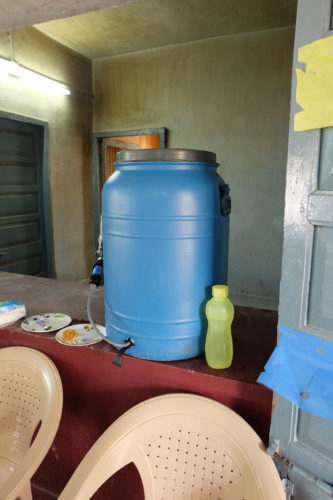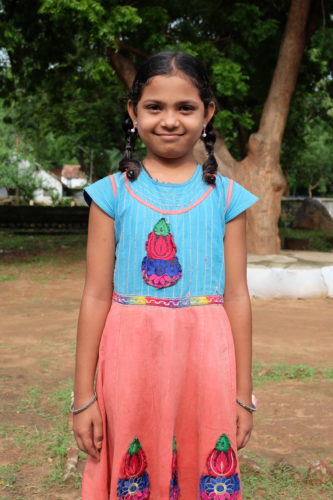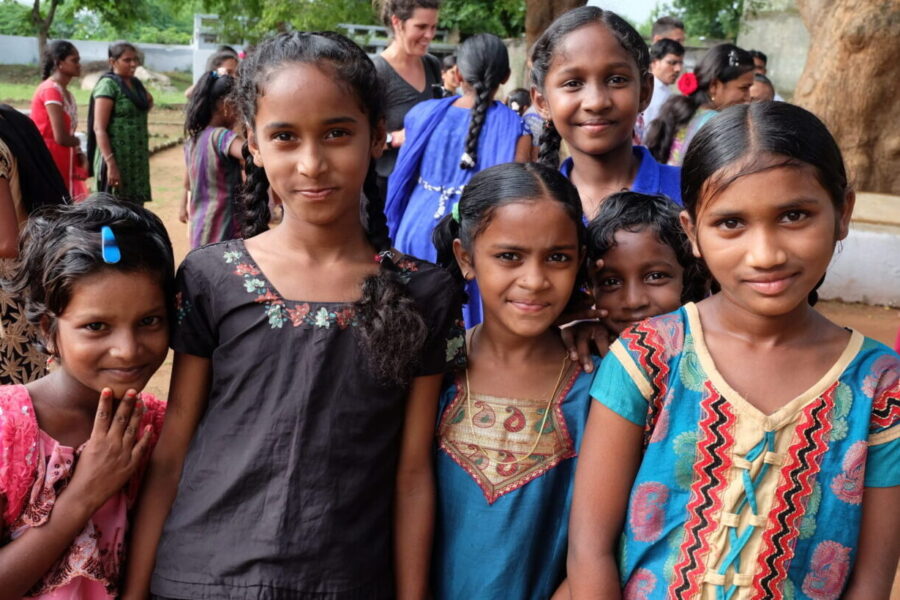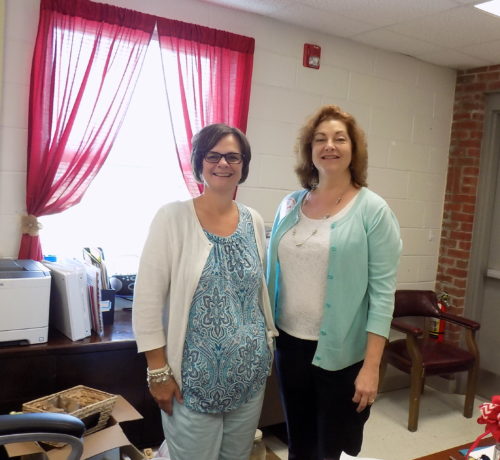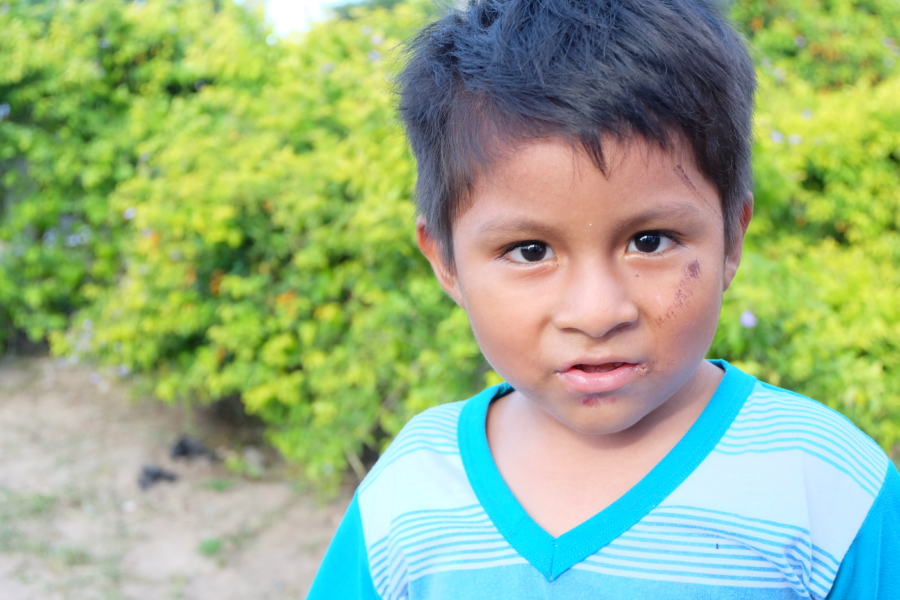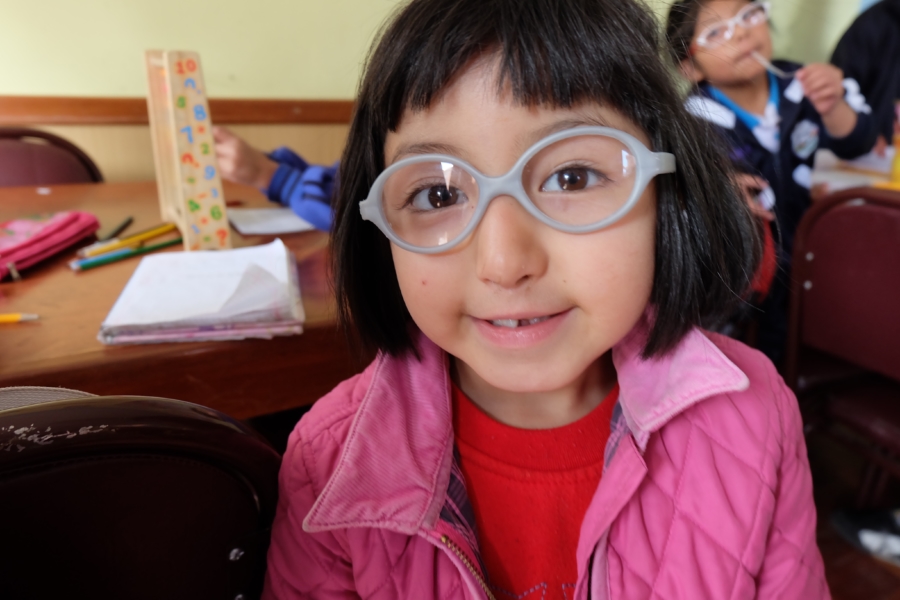Bath County Middle School is located at the end of Main Street in Owingsville, Kentucky, where residents have experienced economic decline, unemployment, and poverty in an otherwise picturesque region of the United States. On a recent trip to Owingsville, our Director of U.S. Programs, Renée Kube, visited with our Volunteer Coordinator at the school, Kaye, to find out more about how Children Incorporated is helping kids enrolled in our program get what they need so that they don’t fall into a pattern that is all too common for students living in poverty:

Exterior shot of the school
“Our biggest problem is the students who drop out of school before graduation,” says Kaye. “Our goal at Bath County Middle School is to encourage students to graduate from high school and go on to some useful post-graduation training or higher education.”
Meet the Andrews
Bath County Middle School serves 471 children in grades six through eight. The Family Resource and Youth Services Center at the school provides the primary support for kids in need. While talking with Renée, Kaye said that she works hard to provide simple things to the children — usually items that we don’t think about going without, like toiletries, clothes, and shoes.
Kaye mentioned the Andrew* family, who Renée had met the day before while visiting with our volunteer coordinator at Bath County High School. Kaye described the Andrews, a family of six with two children living at home, as one of the neediest families that she works with. Although the parents are incredibly loving, they have a hard time finding steady employment due to their lack of education and skills. The father picks up odd jobs, but is unemployed more often than not. The mother is disabled; she has some health conditions that affect her greatly, and she is plagued by cataracts and extremely poor vision.
“Our goal at Bath County Middle School is to encourage students to graduate from high school and go on to some useful post-graduation training or higher education.”
Recently, when their landlord sold the small house they were renting, the Andrews became homeless. Thankfully, they were able to stay with another family temporarily; but the transition only caused this already impoverished family to struggle more than ever. Kaye was able to help them by providing them with soap and shampoo — things that the Andrews couldn’t afford – thanks, especially, to the Children Incorporated program. With two sponsored children enrolled in the program — a son at the high school and a daughter at the middle school — Kaye says it has been a blessing for the Andrews’ children to have sponsors to help them while their family tries hard to get back on their feet.
Kaye continued to praise our sponsors and what they do for the children at her school. She said it is an incredible feeling, at times when she is trying to figure out what to do to help a child who is really struggling, to receive an additional monetary gift for that child from a sponsor, or a package or caring letter or card from the sponsor. Kaye said that the sponsors’ interest in and devotion to these kids are transformational for them.
Overwhelmed by the need
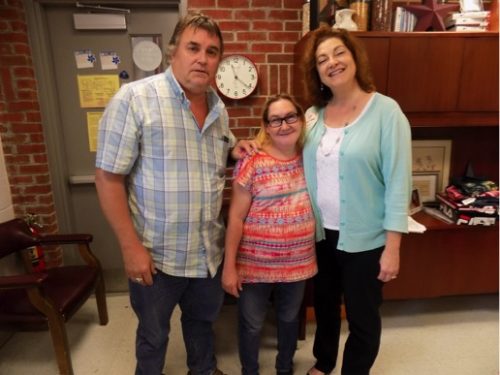
Renée with the Andrew Family
When Kaye first started working at the resource center, then became our volunteer coordinator, she felt overwhelmed by how in need the students at Bath County Middle School are. Over time, she has established many methods and systems through which to care for them, one of which is stocking her supply closet full of the important small items that help kids out a lot. Donations of school supplies and food come from local churches and school staff members here and there, but Kaye relies mostly on the support of sponsors for purchasing clothes and shoes for kids.
Despite receiving help for the more than forty kids she now has enrolled in our program, Kaye says that her greatest need is more funding still for the purchase of hygiene items like sanitary napkins, deodorant, and laundry detergent. Kaye washes a lot of clothes for students in a washer at the resource center that was purchased years ago with Children Incorporated funds. The children bring their dirty clothes to her in the mornings, and she cleans them and returns them to their book bags before the school days are done, ensuring it is done discretely so as to not embarrass the kids she serves. The students also need more food to take home on the weekends, because oftentimes they don’t receive food outside of the free meals they receive at school.
It all adds up; these small things that don’t cost a lot really add up and become expensive when the need is so great. Renée told Kaye that she was impressed that she is able to accomplish so much for the children on the small budget she receives for the resource center. Kaye returned the compliment to Renée, telling her that without a doubt, Children Incorporated is her favorite program and her best resource to help kids get the little things they so desperately need.
*Name changed to protect the family.
***
HOW DO I SPONSOR A CHILD IN KENTUCKY?
You can sponsor a child in Kentucky in one of three ways: call our office at 1-800-538-5381 and speak with one of our staff members, or email us at sponsorship@children-inc.org or click the link below:


